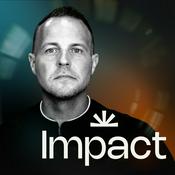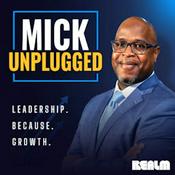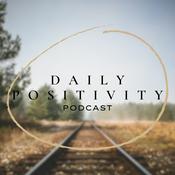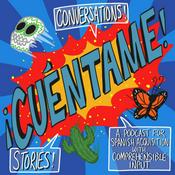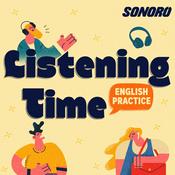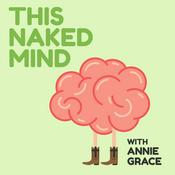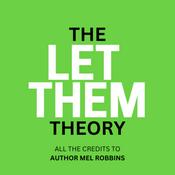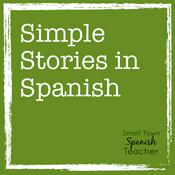67 episodes
- What does it take to steward a public garden in the middle of a growing city? This episode explores how Bellevue Botanical Garden blends design, ecology, and community partnerships to create a resilient urban landscape.
James Gagliardi, the director of Bellevue Botanical Garden, shares insights into the garden's history, community involvement, and its role as a vital green space in an urban environment. He discusses the importance of accessibility, educational opportunities for home gardeners, and the collaborative efforts in maintaining and curating the garden. The conversation also highlights future growth plans and how visitors can engage with and support the garden.
We'd love your feedback! 🌱
Your input helps The Evergreen Thumb improve and bring you more of the gardening content you care about. Please take a few minutes to complete our listener survey and share your thoughts.
Take the survey here: https://wsu.co1.qualtrics.com/jfe/form/SV_7QIbU5wb07yEGTs
Thank you for helping us grow!
Resources mentioned in this episode, along with a full transcript, can be found on our website. - Are you looking to boost your vegetable garden's productivity while keeping soil healthy and pests under control? In this episode, Erin dives into practical crop rotation strategies, including Eliot Coleman's proven rotation and the leaf–root–flower–fruit method. Learn how to sequence crops, use cover crops, and plan rotations that maximize yields and protect your garden soil.
We'd love your feedback! 🌱
Your input helps The Evergreen Thumb improve and bring you more of the gardening content you care about. Please take a few minutes to complete our listener survey and share your thoughts.
Take the survey here: https://wsu.co1.qualtrics.com/jfe/form/SV_7QIbU5wb07yEGTs
Thank you for helping us grow!
Resources mentioned in this episode, along with a full transcript, can be found on our website. - Creating Plant Guilds with Native Plants in Washington State
Discover how to design thriving, low-maintenance landscapes by mimicking nature's own plant communities! In this solo episode, we explore the concept of plant guilds—groups of plants that work together to create mutually beneficial ecosystems—using Washington's incredible diversity of native species.
Learn the essential layers of a successful guild, from canopy trees down to groundcovers, and how each plant plays a specific role in supporting the whole community. We feature detailed deep dives into two guilds:
Western Washington Rainforest Edge Guild - Multi-layered woodland for moist, shaded sites with plants like Western Red Cedar, Vine Maple, Red-flowering Currant, and Sword Fern
Eastern Washington Shrub-Steppe Guild - Incredibly drought-tolerant plants for hot, dry sites featuring Ponderosa Pine, Big Sagebrush, Rabbitbrush, and Arrowleaf Balsamroot
Plus overviews of four additional guilds covering Garry Oak savanna, Palouse prairie, mountain meadows, and riparian corridors. Get practical tips on implementation, maintenance, and common mistakes to avoid when creating your own native plant guilds.
Resources mentioned in this episode, along with a full transcript, can be found on our website. - Washington once grew hundreds of unique apple varieties—many of which disappeared from modern cultivation. In this episode, David Benscoter of the Washington Lost Apple Project shares how he tracks down these forgotten varieties, why so many vanished, and what it takes to preserve their genetics for the future.
We explore how old orchards are located and identified, the stories behind rare rediscoveries, and how these heritage apples contribute to biodiversity and resilience in a changing climate. David also offers insight into how home gardeners can support conservation efforts and even grow heritage fruit trees themselves.
Resources mentioned in this episode, along with a full transcript, can be found on our website.
More Education podcasts
Trending Education podcasts
About The Evergreen Thumb
Since 1973, WSU Extension Master Gardeners have been developing programs to address the evolving needs of our communities. Each episode, we'll dig into the fascinating world of gardening, exploring a wide range of topics tailored to our unique climate and diverse flora. Whether you're an experienced gardener with a green thumb or a beginner eager to cultivate your own green oasis, we're here to inspire and educate.
Join us as we invite expert horticulturists, seasoned Master Gardeners, and passionate plant enthusiasts to share their wisdom, practical tips, and hands-on experiences. We'll cover everything from plant selection and care, sustainable gardening practices, organic pest control, and landscaping design, to tackling common challenges specific to our region.
Discover the secrets to thriving vegetable gardens, vibrant flower beds, bountiful fruit trees, and breathtaking native plant landscapes. We'll also explore the intersection of gardening and sustainability, discussing topics like permaculture, composting, and water-wise gardening to help you create an environmentally friendly garden that nurtures both you and the ecosystem.
So, whether you're tuning in from the urban jungles of Seattle, the rolling hills of Spokane, or anywhere else in the Pacific Northwest, get ready to dig deep, cultivate your knowledge, and connect with a community of fellow gardening enthusiasts.
Podcast websiteListen to The Evergreen Thumb, Miracle Mentality with Tim Storey (Motivation, Self Help, and Mental Health) and many other podcasts from around the world with the radio.net app

Get the free radio.net app
- Stations and podcasts to bookmark
- Stream via Wi-Fi or Bluetooth
- Supports Carplay & Android Auto
- Many other app features
Get the free radio.net app
- Stations and podcasts to bookmark
- Stream via Wi-Fi or Bluetooth
- Supports Carplay & Android Auto
- Many other app features


The Evergreen Thumb
Scan code,
download the app,
start listening.
download the app,
start listening.



